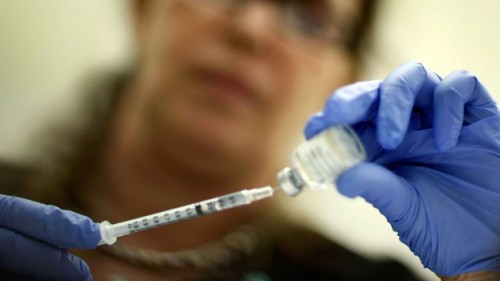When I was a medical student in 1980, I cared for a 3-month-old girl named Candace. She was admitted to the intensive-care unit with fever, severe diarrhea and seizures because of low blood-sodium levels.
We suspected rotavirus infection, although testing was unavailable at the time. Sadly, she died of complications of extreme dehydration.
I recall being astonished that a “stomach virus” such as rotavirus could be fatal in the United States.
Rotavirus is the most-common cause of severe infant diarrhea. It is responsible for about 500,000 childhood deaths each year worldwide and is a major killer in underdeveloped countries.
In the 1990s, rotavirus vaccine development was a national research priority. In 2006, the first of two current vaccines was approved for routine use. In the eight years since, rotavirus prevention has become a remarkable public-health success story.
Research involving 4.3 million children in the United States indicates that the vaccine prevents about 170,000 emergency-department visits, 50,000 hospitalizations and 14 deaths each year.
Rotavirus is no longer the leading cause of heath-care visits for infant diarrhea in our country. And reduced rotavirus admissions have allowed children’s hospitals to change the way they do business.
Internationally, the vaccine is saving lives. For example, deaths from rotavirus in Mexico have declined sharply since routine vaccination began.
Last month, two research studies published in the New England Journal of Medicine reported a slight increased risk of an intestinal complication in children receiving the rotavirus vaccine.
There were historical reasons to suspect this particular complication, and regulatory authorities and research teams have been searching for it since vaccinations began.
The complication is called intussusception, which occurs when the intestine collapses in on itself, causing partial or complete intestinal blockage. Hospitalization is required, and surgery is sometimes necessary. Intussusception is a treatable condition and rarely is fatal.
This new research found that the increased risk of intussusception is barely detectable, even when millions of doses of vaccine administration are analyzed.
Since intussusception is relatively common in unvaccinated infants, finding additional cases attributed to the vaccine required the use of advanced statistical approaches designed to find the proverbial needle in a haystack.
The studies concluded that the risk of intussusception because of rotavirus vaccination is estimated at between one and five cases per 100,000 vaccinated infants. The bottom line is that the risk is extremely small compared with the risk of severe, dehydrating diarrhea and hospitalization.
The rotavirus vaccine came about 25 years too late for my patient Candace, but not too late for infants born today.
Authorities suggest that families should be informed of the risk of intestinal complications with the vaccine, but the message should be clear that the benefits far outweigh the risks.
The Columbus Dispatch
Dr. John Barnard is president of the Research Institute at Nationwide Children’s Hospital.
john.barnard@nationwidechildrens.org
Image: cc Foxnews
